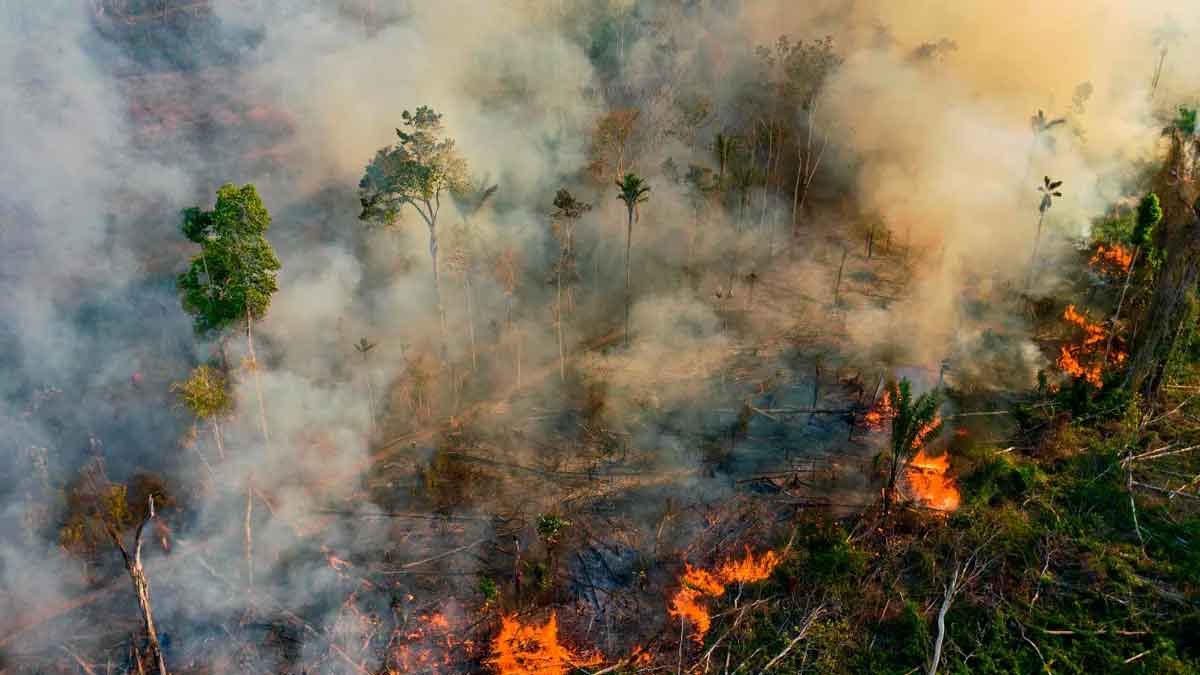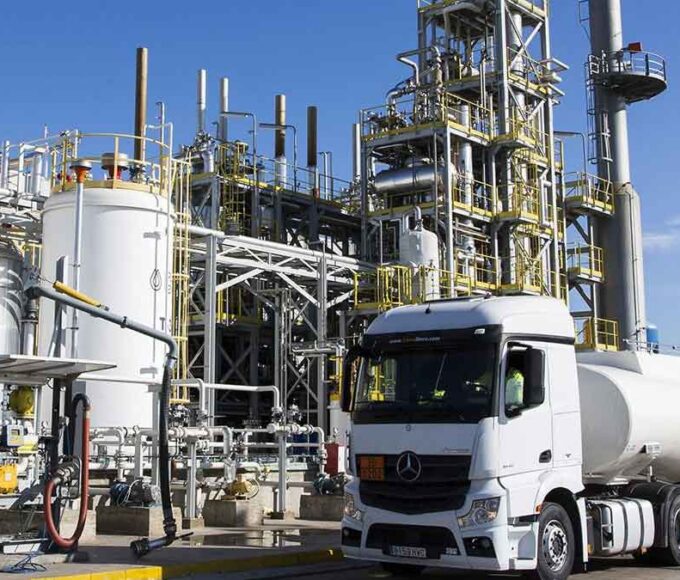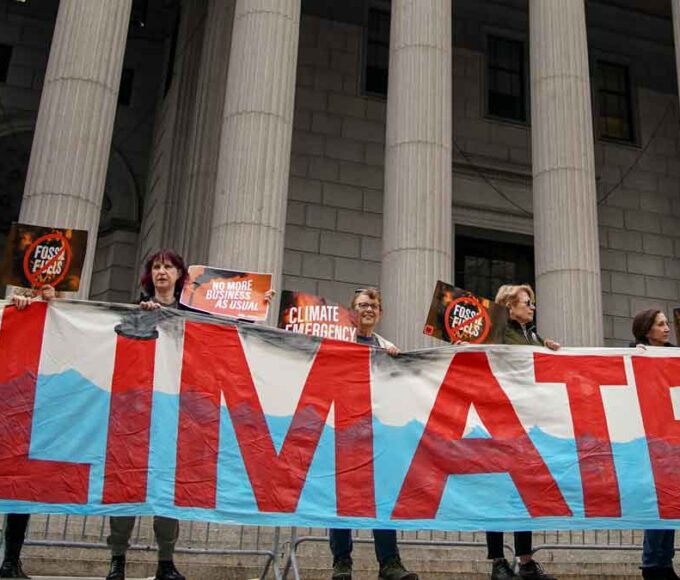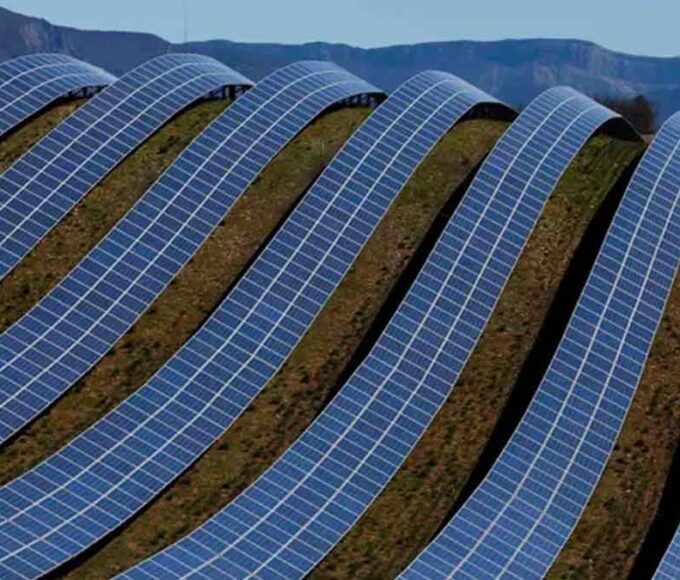- Home
- Billionaires
- Investing Newsletters
- 193CC 1000
- Article Layout 2
- Article Layout 3
- Article Layout 4
- Article Layout 5
- Article Layout 6
- Article Layout 7
- Article Layout 8
- Article Layout 9
- Article Layout 10
- Article Layout 11
- Article Layout 12
- Article Layout 13
- Article Layout 14
- Article Sidebar
- Post Format
- pages
- Archive Layouts
- Post Gallery
- Post Video Background
- Post Review
- Sponsored Post
- Leadership
- Business
- Money
- Small Business
- Innovation
- Shop
Recent Posts
Amazon Rainforest Faces Deforestation and Climate Crisis

The Amazon rainforest, often viewed as a lush paradise teeming with indigenous cultures and exotic wildlife, is facing an unprecedented threat from deforestation and climate change. Experts warn that between 10% and 47% of the Amazon’s forest cover could be lost by 2050, with devastating consequences for biodiversity, climate regulation, and millions of people who depend on the forest.
Rainforests like the Amazon play a crucial role in absorbing CO2 emissions, acting as a natural buffer against climate change. The Amazon’s ability to sequester carbon far surpasses that of modern technology, making it a vital ally in the fight against global warming. However, rampant deforestation, driven by activities such as illegal logging, cattle ranching, and wildfires exacerbated by prolonged droughts, is pushing the Amazon ecosystem to its limits.
Researchers from the University of Santa Catarina in Brazil, writing in Nature, note that the Amazon has historically been resilient to climatic changes. However, the region is now facing unprecedented stress from rising temperatures, extreme droughts, deforestation, and fires, pushing ecosystems to a tipping point where they lose their ability to recover.
The Amazon is not just a regional treasure; it is a global asset. It houses over 10% of Earth’s terrestrial biodiversity and stores 15 to 20 years’ worth of global CO2 emissions. The forest also plays a critical role in regional weather patterns, contributing up to 50% of rainfall in the area and ensuring the moisture supply necessary for the survival of South America’s natural habitats and indigenous peoples.
Despite its importance, the Amazon has already lost 20% of its original forest cover, equivalent to 300,000 square miles. However, there is hope. Brazil demonstrated significant progress in reducing deforestation between 2005 and 2012, cutting rates by 80% and substantially reducing its carbon emissions.
Unfortunately, recent years have seen a reversal of this trend, particularly during the presidency of Jair Bolsonaro, when deforestation rates surged by 60%. This led to a 12.2% increase in Brazil’s greenhouse gas emissions in 2021, the highest in two decades, according to Brazil’s Climate Observatory.
In response to this crisis, President Lula has vowed to end deforestation by 2030 through increased policing of the rainforests, reforestation efforts, and the creation of an Amazon Fund. Norway and other countries have pledged financial support for these initiatives, recognizing the global importance of preserving the Amazon.
President Lula’s efforts have already yielded results, with deforestation rates dropping by 34% by mid-2023. While this is a significant achievement, deforestation reached its highest levels in 15 years in 2021, underscoring the urgency of the situation.
The impact of deforestation extends beyond the Amazon. Companies like Walmart, committed to achieving net-zero emissions by 2040, are working to source deforestation-free commodities by 2025. However, their supply chains still rely on companies linked to Amazon deforestation, highlighting the need for broader industry action.
Scientists warn that failure to curb deforestation could lead to more severe climate impacts, including increased hurricanes, droughts, and coastal erosion. Rainforest preservation offers a cost-effective solution to reducing CO2 levels and mitigating climate change, benefiting everyone, including those in the United States.
Preserving the Amazon is not just an environmental issue; it is an economic and moral imperative. As countries continue to grapple with the challenges of climate change, protecting the Amazon remains one of the most effective strategies for ensuring a sustainable future for all.
Recent Posts
Categories
- 193cc Digital Assets2
- 5G1
- Aerospace & Defense46
- AI37
- Arts3
- Banking & Insurance11
- Big Data3
- Billionaires426
- Boats & Planes1
- Business328
- Careers13
- Cars & Bikes76
- CEO Network1
- CFO Network17
- CHRO Network1
- CIO Network1
- Cloud10
- CMO Network18
- Commercial Real Estate7
- Consultant1
- Consumer Tech180
- CxO1
- Cybersecurity68
- Dining1
- Diversity, Equity & Inclusion4
- Education7
- Energy8
- Enterprise Tech29
- Events11
- Fintech1
- Food & Drink2
- Franchises1
- Freelance1
- Future Of Work2
- Games141
- GIG1
- Healthcare78
- Hollywood & Entertainment186
- Houses1
- Innovation42
- Investing2
- Investing Newsletters4
- Leadership65
- Lifestyle11
- Manufacturing1
- Markets20
- Media193
- Mobile phone1
- Money13
- Personal Finance2
- Policy567
- Real Estate1
- Research6
- Retail1
- Retirement1
- Small Business1
- SportsMoney33
- Style & Beauty1
- Success Income1
- Taxes2
- Travel10
- Uncategorized8
- Vices1
- Watches & Jewelry2
- world's billionaires395
Related Articles
US Treasury’s 45V Regulation Sparks Hydrogen Industry Concerns
The US Treasury Department is set to issue new regulations concerning hydrogen...
By 193cc Agency CouncilFebruary 26, 2024Chicago joins cities suing oil firms over climate risks
Chicago has joined a growing list of cities taking legal action against...
By 193cc Agency CouncilFebruary 24, 2024West African Coups Threaten France’s Energy Security
In West Africa, recent military coups have sparked concerns in France over...
By 193cc Agency CouncilFebruary 23, 2024Biden’s LNG Pause: Impact and Debate
U.S. LNG exports have played a significant role in global markets, especially...
By 193cc Agency CouncilFebruary 17, 2024















Leave a comment